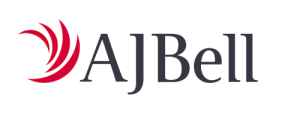During March, our net asset value return was 3.1% and shareholder returns were 1.4%, in comparison to the FTSE All-World Index return of 3.2%.
Equity market performance remains positive, with the FTSE All-World Index rising by 3.2% in sterling terms. Technology stocks in the US continued to outperform; an equal-weighted index of the ‘Magnificent Seven’ stocks returned over 18% during the first quarter in sterling terms. This reflected resilient economic growth and robust earnings; growing hopes for an economic soft landing; and expectations for interest-rate cuts later this year. Japanese equities (+3.5%) delivered outperformance versus the global benchmark this month, with the Nikkei surpassing its previous 1989 record high despite the Bank of Japan tightening monetary policy in March. Equities in the UK (+4.8%) and Europe (+4.0%) also outperformed. Chinese equities lagged significantly (+1.0%) as imbalances within its domestic economy and uncertainty surrounding the US presidential election continued to challenge sentiment.
During the quarter, concerns around inflation resurfaced and pushed yields higher. While inflation in major developed markets moved closer to central-bank targets, inflation prints missed expectations in some instances. While providing a boost to earnings, upside momentum in US growth has caused a significant shift in the narrative around inflation, with US inflation now expected to be stickier than elsewhere as the economy continues to run hot. Pricing for monetary easing has adjusted to reflect this divergence in inflation expectations, with expectations for the first US interest-rate cut being pushed back to July.
Apple (-5.0%), which remains the Trust’s largest individual underweight position relative to the benchmark, was the Trust’s top contributor to relative returns during March, as was also the case in February. During February, Chinese iPhone shipments declined by 33% year on year, driven by intensifying competition from Huawei. The Department of Justice lawsuit, which alleged monopolistic practices by Apple, was another drag on returns, as were mounting investor concerns that the company’s artificial intelligence capabilities are lagging peers. The Trust’s overweight position in refiner Marathon Petroleum (+19.2%) also performed well, driven by lower-than-expected utilisations across the US and an abnormally heavy maintenance season. First-quarter earnings-per-share estimates for the company have been revised upwards significantly, with buybacks rising to $2.5bn per quarter also proving supportive. AIA Group (-17.2%), the Asia-focused insurer, was the most significant detractor from relative returns this month, with investor concerns centred around the timing/method of returning excess capital to shareholders and the quality of growth within the company’s China segment, where there has been significant product margin compression. Food retailer and distributor Jeronimo Martins (-17.0%) also detracted in March, driven by management’s cautious tone for near-term earnings delivery on rising operating expenses and subdued sales volumes.
We ended the month at a discount of 11.3%, widening from a discount of 9.9% at the end of February.










